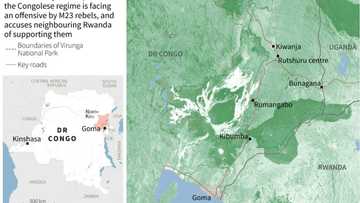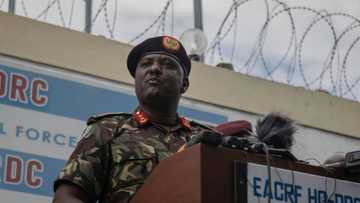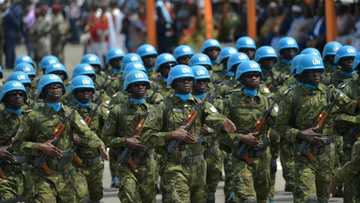W.Africa coastal states eye more cooperation over Sahel jihadism

Source: AFP
PAY ATTENTION: Сheck out news that is picked exactly for YOU ➡️ find the “Recommended for you” block on the home page and enjoy!
West African coastal states on Thursday held their first major talks on boosting cooperation against jihadist violence spilling over from the Sahel after more countries announced they would pull their peacekeepers out of Mali.
Gulf of Guinea neighbours Benin, Ghana, Ivory Coast and Togo are confronting increased risks from Islamic State-allied and Al Qaeda militants waging war over their northern borders in the Sahel.
As part of the so-called Accra Initiative, representatives of coastal states, the European Union and others met in the Ghanaian capital for talks on security and intelligence cooperation.
Ghana's National Security Minister Albert Kan-Dapaah said collaboration was needed as the threat from extremism is "more widespread than previously thought and transcending borders."
"The threat landscape has consistently changed," he said.
In the first quarter of 2022, Africa recorded 346 attacks, almost half of which were in the west of the continent, he said.
PAY ATTENTION: Join Legit.ng Telegram channel! Never miss important updates!
Launched in 2017, the Accra Initiative includes Benin, Togo, Ghana, Ivory Coast as well as Burkina Faso. Mali and Niger have also since joined.
The Accra meeting, expected to extend to next week, will also involve representatives from the EU and British government and the 15-member West African bloc ECOWAS.
Spreading insurgency
The Sahel's jihadist conflict began in northern Mali in 2012, spread to Burkina Faso and Niger in 2015 and now states on the Gulf of Guinea are suffering sporadic attacks.
Across the three Sahel nations, thousands of people have been killed, more than two million displaced and devastating damage has been inflicted to three of the poorest economies in the world.
French and other peacekeeping missions had been operating in Mali for almost a decade as a bulwark against the spread of Islamist violence.
But after two coups in Mali, the military junta has moved closer to Moscow, buying Russian weapons and allowing what Western countries call Russian mercenaries to operate.
That has eroded ties with Western partners. France earlier this year pulled out its troops under its Barkhane anti-jihadist mission.
This week, Ivory Coast, which is embroiled in a separate row with Mali over detained Ivorian soldiers, said it would withdraw its contingent from the UN peacekeeping mission MINUSMA by August 2023.
Britain also announced a pullout from MINUSMA within six months, and Germany warned its soldiers would quit the force by the end of next year "at the latest."
British Defence Minister James Heappey said on Monday he would be joining the Accra meeting next week as the UK, France and others look at options for "rebalancing our deployment".
"I will join colleagues from across Europe and West Africa in Accra to co-ordinate our renewed response to instability in the Sahel," he said.
Benin and Togo in particular have faced an increased threat from across their northern borders with Burkina Faso.
Benin, which has recorded 20 incursions since 2021, is also in talks with Rwanda over logistical aid and military expertise.
Togo has suffered at least five attacks, including two deadly assaults, since November 2021. More than 4,000 people in northern Togo have been displaced this year alone, the government in Lome has said.
Source: AFP





